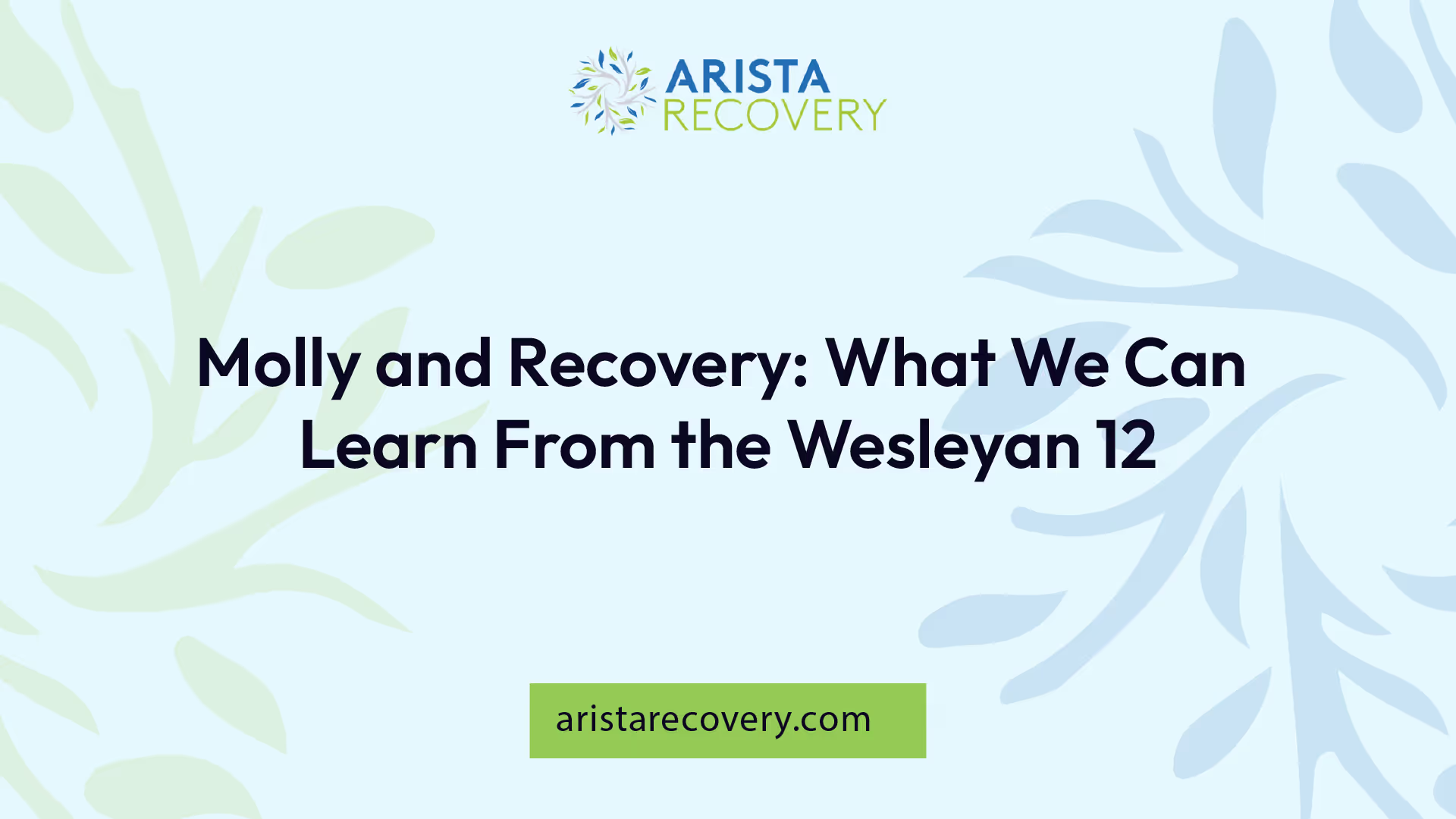Molly and Recovery: What We Can Learn From the Wesleyan 12

Molly: The Wesleyan Incident
Drug Overdoses at Wesleyan
The Wesleyan University incident serves as a significant example of the dangers associated with the misuse of Molly, also known as MDMA or Ecstasy. On February 21, 2015, ten students and two guests were admitted to hospitals due to suspected drug overdoses after consuming a bad batch of Molly. This alarming event prompted several ambulances to respond to the campus located in Middletown, Connecticut. Following this incident, five students faced arrests related to drug charges, highlighting the serious legal ramifications that can accompany substance abuse [2].

Incident DateStudents InvolvedGuests InvolvedHospitalizationsArrestsFebruary 21, 2015102125
Molly Use on College Campuses
Molly has gained popularity on college campuses as a club drug, often associated with party culture and music festivals. Its use is alarming as it poses significant health risks, including overdose and long-term effects that could lead to addiction. The Wesleyan incident serves as a sobering reminder of the potential hazards linked to Molly use and raises awareness about the need for education and prevention efforts on college campuses.
The rise of Molly and similar substances has sparked discussions about the role of educational institutions in addressing drug-related issues among students. Universities are increasingly focusing on harm reduction strategies, which aim to minimize the risks associated with drug use while promoting a safe and informed campus environment. This includes providing resources for students about the dangers of substance abuse and encouraging help-seeking behavior in the face of addiction.
Molly's association with social gatherings highlights the importance of peer influence and the environments that can unintentionally encourage risky behavior. Awareness campaigns and support systems are crucial to ensuring the well-being of students, particularly in settings where drug use might be normalized.
Impact of the Molly Incident
The incident involving the use of Molly at Wesleyan University had significant repercussions on both the campus community and the broader conversation about drug use in educational environments.
University Warnings
Following the overdose event on February 21, 2015, where ten Wesleyan students and two guests were hospitalized due to suspected Molly overdoses, the university took immediate action. The administration issued a warning about the dangers associated with the drug, also known as MDMA or Ecstasy. This communication aimed to educate students about the risks of recreational drug use and to prevent future incidents [1].
Warning Actions TakenDescriptionIssued Public StatementsInforming campus about the dangers of drug useIncreased Security MeasuresHeightened vigilance during events and gatheringsOffered Counseling ServicesProvided support for students affected by the incident
Legal Consequences
The night of the incident resulted in serious legal implications for several individuals involved. Following the overdoses, five students were arrested on drug-related charges, highlighting the legal risks tied to drug consumption on college campuses. Such outcomes not only impacted the students' academic standing but also their future opportunities and reputations.
Legal Actions TakenImpactArrestsFive students faced drug-related chargesUniversity Disciplinary ActionsPossible suspension or expulsion for involved studentsIncreased Legal ScrutinyColleges faced heightened examination of drug policies
The repercussions of the Molly incident at Wesleyan University serve as a critical learning point about the need for effective drug education and the enforcement of safety measures on college campuses.
Brynn King's Achievements
Brynn King has made significant strides in the field of athletics, particularly in track and field. Her accomplishments highlight her dedication to the sport and her remarkable talent as an athlete.
Athletic Recognitions
Throughout her athletic career, Brynn King has garnered various honors that celebrate her skills and contributions to the sport. Notably, during the 2023-24 indoor season, she was awarded the East Coast Conference Women’s Field Athlete of the Week. This recognition reflects her outstanding performance and commitment to excellence in her athletic endeavors.
AchievementYearEast Coast Conference Women’s Field Athlete of the Week2023-24
Track and Field Accolades
Brynn King’s prowess in track and field is underscored by her impressive accolades. She became the 2024 NCAA Division II Women's Pole Vault National Champion, a title that signifies her exceptional skill in pole vaulting at a national level. In addition to this accolade, she has made notable contributions to the sport by achieving Division II record-breaking outdoor vaults during the 2024 outdoor season.
Her achievements during outdoor events also include setting Outdoor Meet Records, showcasing her ability to excel in high-pressure situations and deliver outstanding performances against competitors.
AccoladeYearNCAA Division II Women's Pole Vault National Champion2024Division II Record Breaking Outdoor Vaults2024Outdoor Meet RecordsOngoing
Brynn King's accomplishments reflect not just her talent but also her resilience in the face of challenges. Her journey serves as an inspiration to many in the realm of athletics and beyond, reinforcing the importance of dedication and hard work.
Theological Perspectives
The exploration of addiction and recovery can benefit from an understanding of various theological perspectives, particularly between Calvinist and Wesleyan theology. These frameworks provide distinct insights that can influence approaches to issues like addiction.
Calvinist vs. Wesleyan Theology
Calvinist and Wesleyan theological viewpoints differ significantly in their understanding of grace, salvation, and scripture.
AspectCalvinist TheologyWesleyan TheologyKey BeliefPredestination, unconditional election, and limited atonement. Christ died only for the elect. (Warner University)Free grace available to all; Christ died for all. (Warner University)View on ScriptureThe Bible is inerrant, true in all aspects, and holds no errors. (Warner University)Scripture is emphasized but may be interpreted with a broader view, allowing for personal experience.Approach to FaithEmphasizes deep thinking and the cultivation of the mind. (Warner University)Utilizes the Wesleyan Quadrilateral: Scripture, tradition, experience, and reason as foundational sources. (Wikipedia)
Calvinism tends to advocate for a deterministic view of salvation, while Wesleyan theology emphasizes individual responsibility and the universal availability of grace. This distinction can play a substantial role in how Christians perceive and address addiction and recovery within their communities.
R.C. Sproul's Teachings
R.C. Sproul, a prominent Calvinist theologian, provided significant insights into these theological debates. He emphasized several key aspects that impact both individual faith and community practices:
Both theological perspectives provide valuable frameworks that can enrich the understanding of addiction recovery within their respective communities. Whether through the lens of predestination or the assurance of grace for all, these insights contribute to a broader conversation on how faith intersects with the struggle against addiction.
Historical Figures: Molly Brown
Margaret Tobin Brown's Life
Margaret Tobin Brown, famously known as Molly Brown, was a prominent American socialite and philanthropist. She was born in 1867 in Hannibal, Missouri. Known for her strong character and dedication to humanitarian causes, she made significant contributions to various social movements during her lifetime. Brown was particularly involved in philanthropic activities, such as establishing soup kitchens for miners' families and participating in the woman suffrage movement in Colorado [4].
Her political aspirations included several unsuccessful bids for a seat in Congress between 1909 and 1914, predating women's suffrage in the United States [4].
Titanic Survivor's Legacy
Molly Brown's legacy is closely tied to her survival of the sinking of the Titanic in 1912. While traveling aboard the ship, she learned of her grandson's illness and made her way to Europe, intending to return home. During the disaster, she showed remarkable bravery, assisting in the command of a lifeboat and helping many survivors retreat to safety. Her efforts were aided by her proficiency in multiple languages, which allowed her to effectively communicate during the chaos [4].
In recognition of her contributions, she was awarded the French Legion of Honour in 1932 for her advocacy work and her role during and after the Titanic's sinking, as well as her volunteer efforts during World War I. Margaret Tobin Brown's story reflects not only her personal achievements but also the impact one individual can have on both their community and history.
Educational Initiatives at Wesleyan
Wesleyan University is committed to outreach and community enrichment through various educational initiatives tailored for K-12 students. These programs aim to provide academic support, cultural experiences, and enrichment opportunities to local youth.
K-12 Outreach Programs
The Wesleyan Center for Community Partnerships oversees a range of K-12 programs that cater to diverse interests and educational needs. These initiatives are free and open to the public, contributing to the academic enrichment of students across different fields.
Program NameFocus AreaAge GroupCostIndividual TutoringAcademic EnrichmentK-12 StudentsFreeUpward Bound Math-ScienceSTEM EducationHigh SchoolFreeYouth Gamelan EnsembleArts/CultureAges 7-14$30/weekWesReads/WesMathLiteracy/NumeracyK-12 StudentsFreeWesleyan High School ScholarsHigher EducationJuniors/SeniorsTuition-Free
The Upward Bound Math-Science program specifically supports low-income and first-generation high school students by providing tutoring, Saturday enrichment sessions, and a six-week intensive program.
Community Enrichment Opportunities
In addition to K-12 educational programs, Wesleyan offers community enrichment opportunities aimed at fostering lifelong learning and connection among residents.
These programs include:
Through these initiatives, Wesleyan University plays a vital role in enhancing educational opportunities for local students and contributing to the community’s overall development. Such efforts reflect the lessons learned from incidents like the Wesleyan 12, emphasizing the importance of prevention and education in addressing issues of substance abuse and recovery.
References
[2]:
[3]:
[4]:
[5]:
You’re not alone in this.
When mental health challenges and addiction intersect, it can feel isolating. At Arista, we offer compassionate, evidence-based, and trauma-informed care to help you heal, grow, and move forward.
You’re not alone in this.
When mental health challenges and addiction intersect, it can feel isolating. At Arista, we offer compassionate, evidence-based, and trauma-informed care to help you heal, grow, and move forward.
Support that moves with you.
You’ve taken a brave first step. At Arista Recovery, we’re here to help you continue with best-in-class care designed for long-term healing and support.
.webp)






